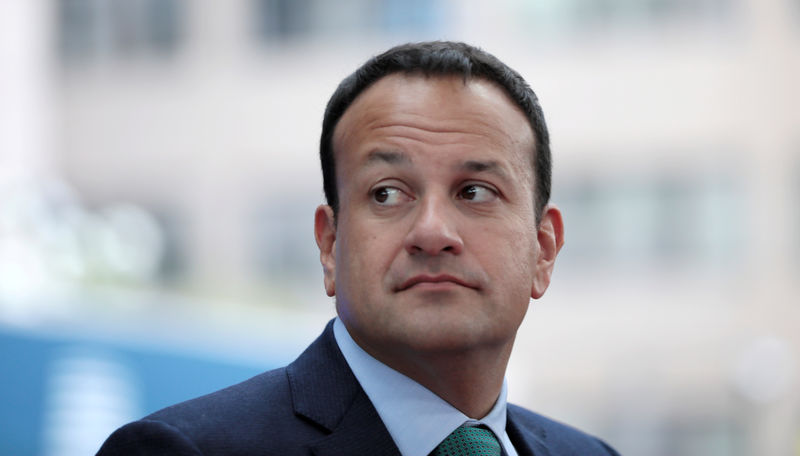DUBLIN (Reuters) - British citizenship laws are out of step with Northern Ireland's 1998 peace accord that recognized the birthright of anyone in the British-run region to identify as Irish, British or both, Irish Prime Minister Leo Varadkar said on Tuesday.
Varadkar was responding to a high-profile citizenship ruling handed down at a hugely sensitive time in Britain's negotiations to leave the European Union, which could redefine Northern Ireland's relationship with the rest of the United Kingdom and the Irish republic, threatening 20 years of peace in the region.
Northern Ireland native Emma DeSouza identified herself as an Irish citizen when applying for her U.S.-born husband to live and work in Northern Ireland but the application was rejected when Britain's interior ministry said it considered DeSouza a British citizen because she was born in Northern Ireland.
On Monday, DeSouza lost an appeal the interior ministry took against an earlier immigration tribunal ruling that found in her favor, prompting questions in Ireland's parliament by the Irish nationalist Sinn Fein party.
"This is an issue of huge significance to people living in Northern Ireland in particular. The Good Friday Agreement is eloquent on this matter in my view and it says that people in Northern Ireland have a right to be Irish, British or both and accepted as such," Varadkar told parliament.
"It is my view that the British citizenship laws are out of step with the letter and spirit of that agreement.. This judgment appears to make a distinction between identifying as British or Irish, as opposed to being a citizen and that is a misreading in our view of the Good Friday Agreement."
DeSouza has said she intends to appeal the ruling, arguing that imposing an identity on people in Northern Ireland goes against the 1998 peace deal that mostly ended three decades of violence between predominantly Catholic nationalists seeking union with Ireland and mainly Protestant unionists who want Northern Ireland to remain part of the United Kingdom.
Varadkar said his deputy, Simon Coveney, would raise the issue with Britain's Northern Ireland minister over the next couple of days and that he would discuss it with his counterpart, Boris Johnson, at an EU summit later this week.
The Irish premier added that Johnson's predecessor, Theresa May, "acknowledged the serious and real concerns in this area" when Varadkar raised it in February and pledged to review the issues around citizenship urgently to deliver a long term solution consistent with the Good Friday Agreement.
"We're continuing to seek an outcome of that review," he said.
